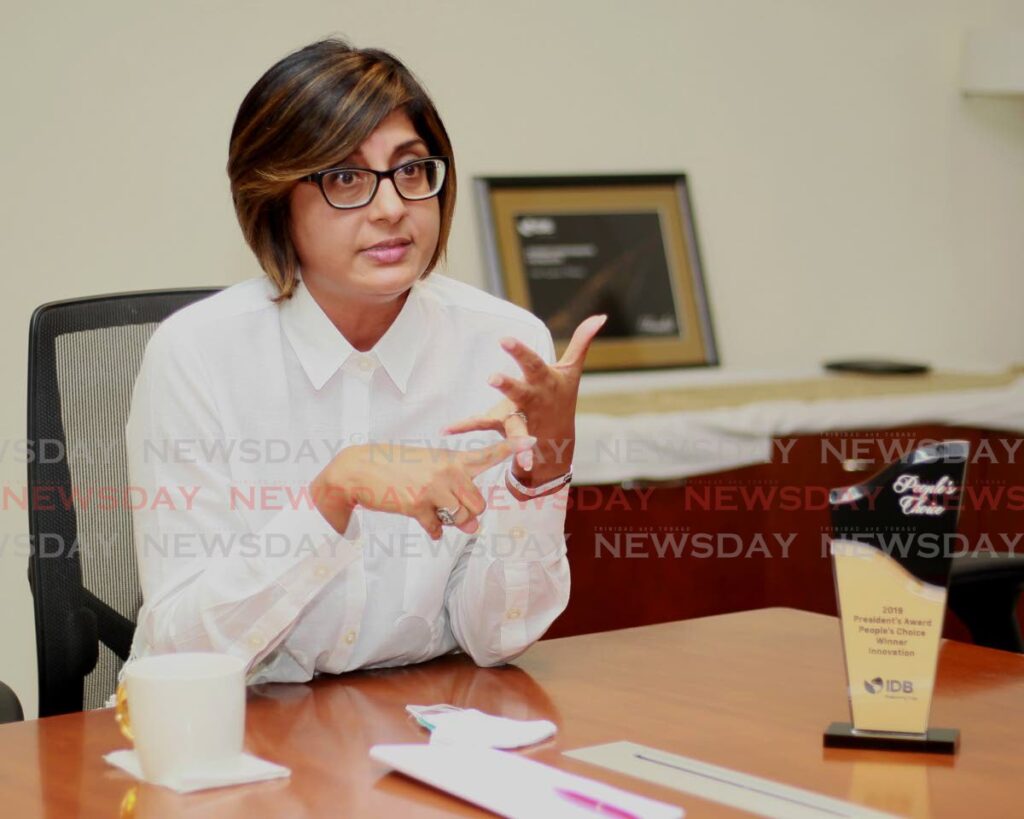PCA Deputy: More experts and tech needed to 'unclog' justice system

DEPUTY Director of the Police Complaints Authority (PCA) Michelle Solomon-Baksh says more mental health experts, forensic experts and staff at the DPP office are all needed if the the recently proclaimed Administration of Justice (Indictable Proceedings) Act (AJIPA) is to work as expected.
These were among ten recommendations she gave while speaking at a civil society anti-crime summit hosted by The People’s Roundtable on Wednesday at the Cipriani Labour College in Valsayn.
Prior to its proclamation, the Office of the Attorney General and Ministry of Legal Affairs (AGLA) said act, which abolishes preliminary enquiries, "will create sweeping changes to the functioning of the courts and the dispensation of justice, reduce case backlog, ease the burden on witnesses and significantly eliminate the wastage of time and resources in the disposal of indictable matters."
The amended law removes preliminary enquiries from indictable matters such as murder, kidnapping, money laundering and some forms of sexual abuse, and allows those cases to go straight to the High Court.
Solomon-Baksh, who was previously a criminal defence attorney, spoke from the perspective of a judicial stakeholder.
She said lawyers agree there is “a healthy backlog” of summary court matters and indictable matters.
She added this is compounded by the “bottleneck…when it comes to getting matters started.”
Solomon-Baksh described AJIPA as a progressive legislative tool designed to rely on innovation and technology to deal with the judicial backlog and “frustrating delays.”
However she said while it should trigger excitement, it should also be approached with “a healthy dose of reservation”.
Solomon-Baksh suggested other measures need to be implemented simultaneously to see any real change.
Several of the measures centred on the introduction or increased use of scientific and technological tools and experts without which, she suggested, AJIPA will be inefficient.
“We need more pathologists. Internationally we are seeing a decline in this area of expertise. Without the post-mortem and scientific reports, there will be an inevitable choke.”
She added, “The Forensic Science Centre (FSC), Special Evidence Recovery Unit (SERU) and any other lab that will generate certificates of analysis and documentary or scientific report must be efficient.”
Solomon Baksh recommended the authorities undertake a hiring exercise to address this issue.
“At least for the next ten years, we actually need to flood these services with several short term contracts, address the backlog and then rely on a tool that is sustainable. If we don't take that first strike with what a battalion of experts, we will choke the new system we created with new masters and judges.”
She said the same approach needs to be taken within the office of the Director of Public Prosecutions.
Solomon-Baksh said there also needs to be increased reliance on CCTV and police body camera footage together with scientific evidence instead of the current reliance on eyewitnesses.
“This would lend itself to plea bargaining, guilty pleas, formal admissions, saving of judicial time, economical cross examination and the safety of witnesses.”
She said a greater number of mental health experts is also necessary given the purpose of the judicial system.
“I would assert that the criminal justice system is in the business of processing human frailty. So we need more forensic psychiatrists and experts, especially since in our jurisdiction we are generating death penalty cases.”
Solomon-Baksh also called for a culture shift in the judicial system that embraces plea bargaining.
She said this model has had success in almost every jurisdiction where it has been implemented.

Comments
"PCA Deputy: More experts and tech needed to ‘unclog’ justice system"